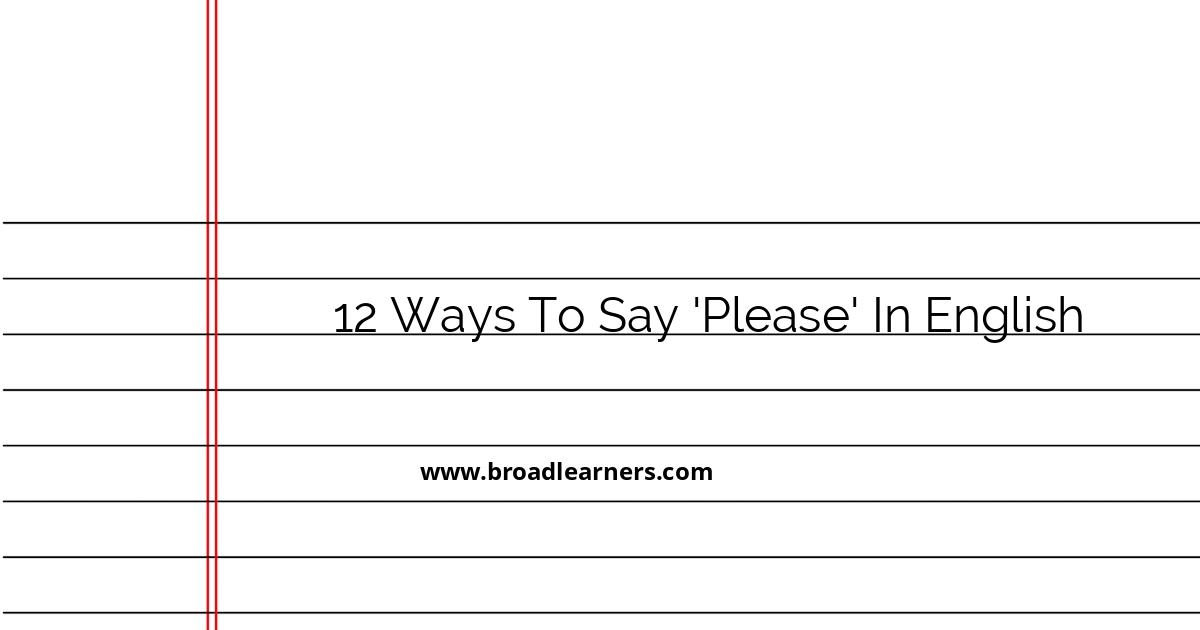The word 'please' plays a vital role in adding politeness and courtesy to requests or commands in the English language. It's essential to use variations of 'please' to maintain professionalism and politeness in different contexts. Let's explore 12 different ways to incorporate 'please' into your vocabulary effectively:
- Could you please...
- Would you mind...
- May I please...
- If you don't mind, could you...
- Might I ask you to...
- Please may I...
- Could you be so kind as to...
- Would you be able to...
- If it’s not too much trouble, could you please...
- Could you kindly...
- Won't you please...
- Can you please...
Each variation has its unique tone and level of formality. Now let's delve into them individually with detailed explanations and examples:
1. Could you please...
This is a very polite and common way to make a request. It's suitable for both formal and informal contexts.
Example:
Could you please send me the report by the end of the day?
2. Would you mind...
This phrase is another polite way of making requests. It implies that you do not wish to inconvenience the other person.
Example:
Would you mind sending me your feedback on the draft?
3. May I please...
A more formal and respectful approach to seek permission or make a request, commonly used in formal writing and speech.
Example:
May I please have a copy of the invoice for my records?
4. If you don't mind, could you...
This phrase is very considerate and is often used when you anticipate that your request might trouble the other person.
Example:
If you don't mind, could you send me the travel itinerary?
5. Might I ask you to...
A very formal way of making a request, suitable for official and formal settings.
Example:
Might I ask you to review the proposal before the meeting?
6. Please may I...
This method places emphasis on politeness, combining both 'please' and 'may I' to show extra courtesy.
Example:
Please may I take a look at the document once you're done?
7. Could you be so kind as to...
This is an exceptionally courteous way to request, signaling high regard for the person you are addressing.
Example:
Could you be so kind as to forward this email to the relevant department?
8. Would you be able to...
A gentle and polite alternative, asking softly about the person's capability or availability to fulfill your request.
Example:
Would you be able to join the conference call tomorrow?
9. If it’s not too much trouble, could you please...
Another way of politely emphasizing that you do not wish to inconvenience the other person.
Example:
If it’s not too much trouble, could you please check the figures for me?
10. Could you kindly...
This is a courteous way of asking someone to do something that requires precision or care.
Example:
Could you kindly verify the data before we publish the report?
11. Won't you please...
This phrase adds a bit of persuasion, gently urging the person to agree to your request.
Example:
Won't you please accompany me to the workshop on Friday?
12. Can you please...
A less formal but still polite way to make requests among colleagues or in casual settings.
Example:
Can you please update the spreadsheet with the new figures?
These 12 varied phrases allow you to make requests politely and appropriately across a wide array of professional and casual contexts—always keeping respect and courtesy at their heart.

Did I miss anything? Respond below